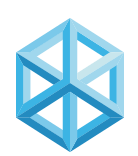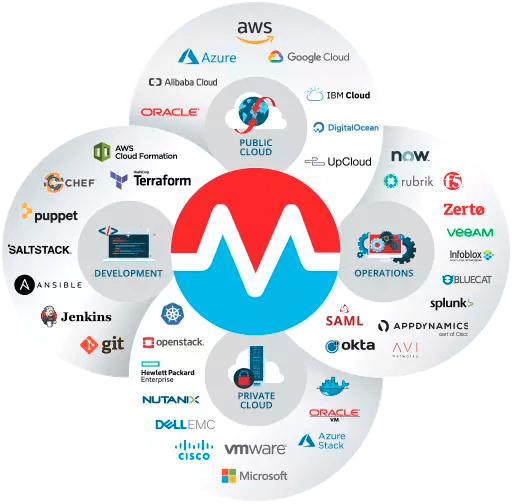
Containers:
Kubernetes, Cloud Native, Docker and Openshift
TRY MORPHEUS DATA FREE TRIAL FOR 30 DAYS
Why did Kubernetes conquer the world?
Linux containers have been around for a long time and the container landscape has evolved considerably. With its history in Google's testing ground, Kubernetes (K8s) has quickly become the de facto standard for containers today.
Kubernetes offers much of the same value as cloud computing as an application platform, such as self-service, elasticity, extensibility, and a declarative language for configuration. In many ways, it gives development teams the same freedom as the cloud and is a way around classic IT bottlenecks.
One hallmark that sets Kubernetes (K8s) apart from the cloud, however, is that it is an open source framework that can run anywhere. The flexibility to deploy a cloud anywhere and develop portable applications gives you unprecedented freedom.

What are the current options and issues?
Kubernetes (K8s) is an open source project, available to anyone in its pure form (vanilla for those close to you) as a framework to be installed in your environment. Alone, it lacks many things that enterprise customers are looking for, such as a user-friendly interface (GUI), a compliance policy engine, a support contract, and many useful abstraction utilities and triggers in enterprise tools.
Kubernetes (K8s) is also a challenge to refactor. Not just at the application level, bringing new ways of managing dependencies into the conversation, but also at the ecosystem level, where pre-container automation tools were built around infrastructure like networking and operations like ITSM.
Various vendors, large and small, have entered the market to provide extensibility on top of Kubernetes (K8s) to meet these needs, but they are not yet complete with features and none have fully captured the entire hierarchy of enterprise needs in a way that brings Dev closer together. and Oops.

How does Morpheus help improve Kubernetes and assist in migrating VMs to Containers?
In the enterprise, the CMDB still rules the day, and heavy investments in ITIL mean newer tools will need to follow compliance and policy standards just like traditional ones.
Morpheus Data brings its out-of-the-box integrations into the domain of Kubernetes Application Orchestration (k8s), enabling true hybrid application deployments that work within the boundaries of governance and approvals. Morpheus Data also makes it easy to package applications and application components for self-service and alleviate the burden on the developer of taking care of and feeding the operational concerns of the application in the environment.
Finally, because application modernization is a journey, Morpheus Data can help as you re-platform applications. For example, some application tiers may run as VMs, others using a cloud-native PaaS service, and others may use containers. With Morpheus Data, this is a single cross-platform model.
Morpheus Data cluster management includes Morpheus Kubernetes Service (MKS) in addition to connecting to EKS, AKS, GKE or can bring these operational benefits to existing Kubernetes (k8s) deployments by extending existing platform offerings that may already be on force.
Bring the Cloud Experience On-Prem and Apply On-Prem Control to Public Clouds

Simple
100 built-in codeless integrations for value in under 1 hour

Agnostic
Freedom to run any app on any private or public cloud

Unified
All your VMs, clouds, containers, and apps in a single place

Responsive
Extensible design and an expert team here to help
Build
Centralize Platforms
Consume
Deploy 150x faster
Govern
Assure Compliance
Automate
Modernize Applications

Optimize
Lower cloud cost 30%
With Loonar, you go further!
Here you have special conditions with this partnership:
Loonar was the pioneer in Brazil and has more than 2 years of partnership with the Morpheus Data solution. There are already thousands of managed instances and dozens of customers served in implementation projects, development of integrations and automations, as well as 24/7 support.
Needing to control your cloud resources with first class quality and professionalism? Talk to Loonar and get to know the best of Morpheus Data.

